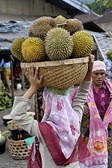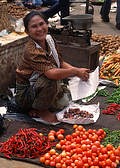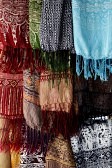Join us on the Wonderful Sail 2 Indonesia Rally, and discover all the best of Indonesian culture and history, fun events and interaction at a grass roots level. At many of the festival program destinations you will also enjoy activities hosted by the local people.
The Festival Program is an Indonesian Ministry of Tourism initiated program and is constantly evolving with new events added from time to time.
The MoT are currently refining the details for this years Festival Event Program, see the Preliminary Event Schedule below. To keep up to date with information as it’s confirmed by Expressing your Interest by filling out the EOI form, simply click HERE
The Festival Event Program is organised and run exclusively but the Ministry of Tourism and their representatives.
Preliminary Program for the 2024 Event Schedule.
AUSTRALIA
AUSTRALIA May, June – Cruise the Queensland Coast – mid July Departure from TI (dates still to be confirmed)
CAIRNS – First week in June there will be some Rally events and get togethers. Boats can then head for the departure at the Torres Straits at the pace that suits them, and enjoy the beauty of this magical coastline to the fullest.
TI MUSTER – After enjoying the Far Nth Qld coast participants will muster in the Torres St at Thursday / Horne Islands during the week before recommended departure dates. There will be a get together at Wongai Beach Hotel – Adjacent Horne Island Anchorage, during this week.
DARWIN: Boats can opt to leave from Darwin and are asked to be in Darwin during the week before the recommended departure date.
CLEARANCE – Clearing out of Australia can be completed on a day that suits for arrival in Debut over the Rally clearance dates. Distance to Debut approx 700nm . Skippers should chose their departure date based on passage speed for their vessel and the weather conditions at the time.
Your hosts Cairns are the Cairns Cruising Yacht Squadron
BOATS TRAVELLING DIRECT FROM OTHER DEPARTURE POINTS
Can travel direct to Debut from any departure point
Rally Clearance in Indonesia
The Wonderful Sail 2 Indonesia Rally finishes at Debut with an organised clearance and festival event. Wonderful Sail 2 Indonesia Rally boats have automatic entry to the Wonderful Indonesia Events Schedule through Indonesia ( schedule to be confirmed for 2024). Participants are free to partake of all or some of these events or to cruise Indonesia on their own.
Recommended Guides:
Cruising Guide To Indonesia:A Pilot Guide To Indonesian Waters by Andy Scott
101 Anchorages within the Indonesian Archipelago by Geoff Wilson
South East Asia Cruising Guide Vol II by Stephen Davies & Elaine Morgan
Southeast Asia Pilot by Andy Dowden & Bill O’Leary
At many of the destinations there will be activities hosted and run by the Local Regencies.
The Route Information Below represents the 2023 Route and will be modified upon confirmation from the Indonesian Ministry of Tourism.
TUAL, Kei Islands (SE Molluca)
The Kei Islands (sometimes spelt Kai) are situated on the edge of the Banda Sea, and is the beginning of The Spice Islands. The group is made up of several islands and are sparsely populated. The area is known for their white-sand beaches and deeply hospitable people.
Tual is the capital of the province and is situated on the island of Kai Kecil which is uplifted coral reef. There are fresh markets and good seafood restaurants in town. The airport is a 40 minute drive from the harbour which is serviced daily by flights from Ambon. The anchorage is a natural harbour and well protected, with a well marked channel. The holding is good. Take care if approaching through the narrows to the north.
BANDA NEIRA (Molluca Regency)
Part of the famed Spice Islands, Banda Neira is one of ten volcanic islands in the Banda Archipalego, historically known for the cultivation of mace & nutmeg, once exclusive to the region. The banda Islands are reputed to have exquisite corals and abundant sealife, and is an internationally recognized diving destinations.
AMBON (SE Molluca Regency)
Ambon was originally colonised by the portueguese befor being driven out by the Dutch who controlled the island until Indonesia became an independent nation. Ambon means sweet or beautiful and refers to both the people and the natural tropical island. The island has a rich and ancient history just waiting to be discovered.
TIFU (Buru Island, SE Moluuca Regency)
A popular stop with great interaction between the village and the Rally Participants. The locals have a large Ukulele band ready to entertain.
WAKATOBI (Wakatobi Regency)
A popular diving destination and the Marine National Park of Wakatobi consists of 4 main islands. The indigenous people of the area belong to the nomadic seafaring Bajan Tribe. The main city of Wanci is a colourful place with a lively harbour filled with wooden boats and a tasty night market.
PASAR WAJO (Buton Regency)
Known for its exceptional hospitality and the biggest dance festival in Indonesia. With a good anchorage there are lots of opportunity to explore.
BAUBAU (Buton Island, SE Sulawesi Regency)
Baubau is a major fishing and exporting port, with historic buildings and is a great place to re-provision.
TAKABONERATE
A lovely island on the route from Baubau to Labuan Bajo, Flores Island. A great place to chill and discover the talent of the local boat builders.
LABUAN BAJO (Flores Island)
Located on the western tip of Flores Island, Labuan Bajo is the gateway to the Komodo National Park. Being a tourist destination there are ample opportunities to stock up on those hard to find items.
BIMA (Sumbawa Island)
SUMBAWA BESAR (Sumbawa Island)
Highlights of Sumbawa are swimming with Whale Sharks and the Buffalo racing.
MEDANA BAY (Lombok Island)
Medana Bay on the north side of Lombok, is a great place for exploring the nearby Gili islands, and the main island of Lombok.
LOVINA BEACH (Bali)
Situated on the NW side of bali, the area of Lovina contains numerous small villages and is quiter than the more popular tourist destinations on the rest of Bali. A visit to Nyalian Village is a must at this stop.
BAWEAN ISLAND
Bawean is dominated by a 655m extinct volcano. The island is home to many endemic species and has caldera lakes, waterfalls and hot springs.
KUMAI, Kalimatan
A river anchorage and a visit here isn’t complete without a trip to see the orang-utan in the tanjung Puting National Park, which is the largest protected swamp forest in SE Asia.
BELITUNG
Giant granite boulders dominate the landscape with crystal clear water and white sandy beaches.Take a hike through the Conservation park and water tube down the river.
BENAN
An island in the Lingga Regency. there are great little warangs (restaurants) and a great area to slow down and enjoy.
TANJUNG PINANG (Bintan Island, Riau Regency)
Second largest city in the Riau Regency, home to the Pinisi traditional wooden sailing craft. this is the jump off point for boats heading to Singapore or Malaysia.



![icns027754[1]](https://www.sail2indonesia.com/wp-content/uploads/2014/01/icns0277541.jpg)
![old-temple-found-central-java-indonesia-15010473[1]](https://www.sail2indonesia.com/wp-content/uploads/2014/01/old-temple-found-central-java-indonesia-150104731.jpg)
![kasuari-bird-indonesia-25746583[1]](https://www.sail2indonesia.com/wp-content/uploads/2014/01/kasuari-bird-indonesia-257465831.jpg)
![mast-pinisi-boat-indonesia-35687748[1]](https://www.sail2indonesia.com/wp-content/uploads/2014/01/mast-pinisi-boat-indonesia-356877481.jpg)
![outrigger-22232415[1]](https://www.sail2indonesia.com/wp-content/uploads/2014/01/outrigger-222324151.jpg)